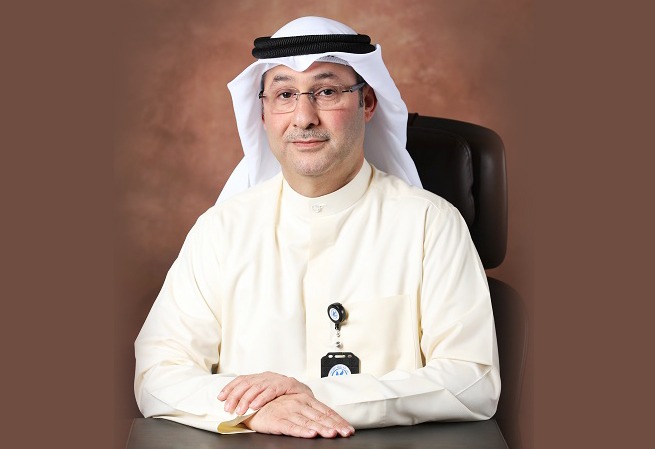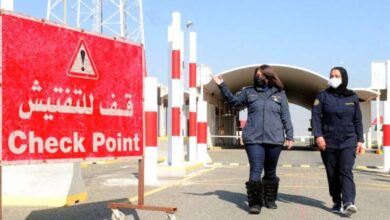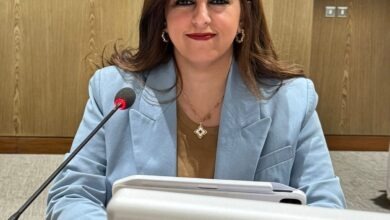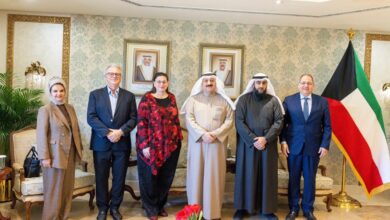KOC: Proactively preparing for shifts in global energy demand
Ahmed Al-Eidan, CEO of Kuwait Oil Company (KOC)

PUBLISHED IN COOPERATION WITH
In a recent interview with The Business Year (TBY), the CEO of Kuwait Oil Company (KOC), Ahmed Al-Eidan, talked about the company’s proactive strategies for increasing production, improving efficiency, enhancing resilience, leveraging technologies, achieving carbon neutrality, and adapting to the shifting global energy demand Al-Eidan, who started out as a well-site geologist at KOC, has over the years gained wide experience in various aspects of the company’s operations, and.risen through the ranks to become its Deputy CEO for Drilling and Technology, before taking on the role of CEO in 2022.
How is KOC preparing for potential shifts in energy demand patterns, and remaining resilient amid changing market dynamics?
We are proactively preparing for potential shifts in energy demand patterns through a strategic approach that focuses on innovation, sustainability, and strategic partnership. Our economy is traditionally dependent on hydrocarbon resources, and it will continue to be a core component of it.
Moreover, KOC, as a major subsidiary of Kuwait Petroleum Corporate, has developed a 2050 Energy Transition Strategy, a strategy that paves the way for the energy business in KOC and Kuwait. It encompasses a roadmap to enhance the use of cleaner energy sources in our operation such as renewable energy, and emerging technologies like carbon capture, use and storage (CCUS) in an effort to reach carbon neutrality by 2050.
KOC is also working to reduce its carbon footprint through operational efficiency improvements. It is worth mentioning that KOC is actively engaging in initiatives to minimize environmental impacts and address social concerns such as planting and building several oases in our operational areas. We are investing heavily in R&D to enhance our operational capabilities, improve recovery rates, and reduce production costs. This technology-driven approach allows us to efficiently adapt to changing market dynamics.
Collaboration with international oil companies (IOCs) and services companies is another key enabler of our strategy. We work to improve our commercial partnership models with IOCs. These partnerships enable us to leverage expertise and resources to enhance production capacities and implement our 2050 Energy Transition Strategy.
What is the expected impact on KOC’s production capacity of new oil projects?
This is a significant component of the KOC 2040 Strategy. We anticipate a substantial increase in our daily oil production volumes equivalent to 750,000 bpd by 2040. This growth aligns with our commitment to meeting the rising global energy demand and our role as a vital and substantial contributor to Kuwait’s economy. Examples of new oil future projects are Kuwait offshore development and Kuwait northwest region as both areas carry significant potential that will help KOC to meet its strategic obligations.
Our new projects are not only about increasing production but about improving cost efficiency. We have employed advanced technologies and innovative practices to optimize our operations, which can help us manage costs effectively and enhance profitability.
KOC, in collaboration with Kuwait Petroleum Corporation, is aiming to expand its crude marketing portfolio to diversify revenue sources. We have created different marketing streams; this reduces our dependency on a single crude type and mitigates the potential impact of fluctuating oil prices to enhance the country’s financial stability and resilience to market volatility.
Consequently, to all of the above, our position in the global market will be strengthened. As with higher production capacity, KOC is poised to maintain and solidify its position as a reliable supplier in global energy markets. This enhances our role as a key player on the international energy map.
Can you elaborate on KOC’s plans for transitioning to a more sustainable energy mix and reducing carbon emissions?
Our approach to renewable energy differs from that of many other companies. While renewable energy is a target for many IOCs and NOCs, we see its role primarily as a source of clean energy for our operations, rather than a core component of our energy portfolio. Our goal is to incorporate renewable energy sources into our infrastructure to power our facilities and reduce our carbon footprint.
KOC is actively exploring the integration of solar power into our operations. We have initiated pilot projects to assess the feasibility and effectiveness of solar energy in powering our facilities, especially in remote areas. Our target is to progressively increase the share of solar energy in our overall energy mix.
Moreover, we prioritize energy efficiency in our operations to reduce carbon emissions. This includes the implementation of advanced technologies, such as energy-efficient equipment and practices, to optimize our energy consumption. We have set specific targets for reducing energy intensity.
BIO:
Ahmad Al-Eidan received his BSc in geology from Kuwait University and joined KOC as a well site geologist, later becoming a development geologist. He went on to become a successful team leader of the prospect evaluation team and then as team leader for fields development gas. Al-Eidan then served as manager exploration group, while also leading the geological, geophysical, and geochemical studies carried throughout the region. In KOC, Al-Eidan served as DCEO for drilling and technology, then West Kuwait, then exploration and gas, and later on for exploration and drilling, before being appointed CEO of the company in 2022. He also served as VP operations and then DCEO with KUFPEC and has also been a KOTC board member since 2017.













